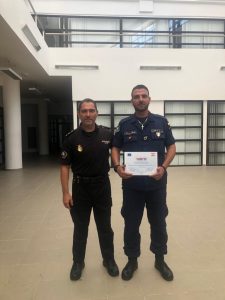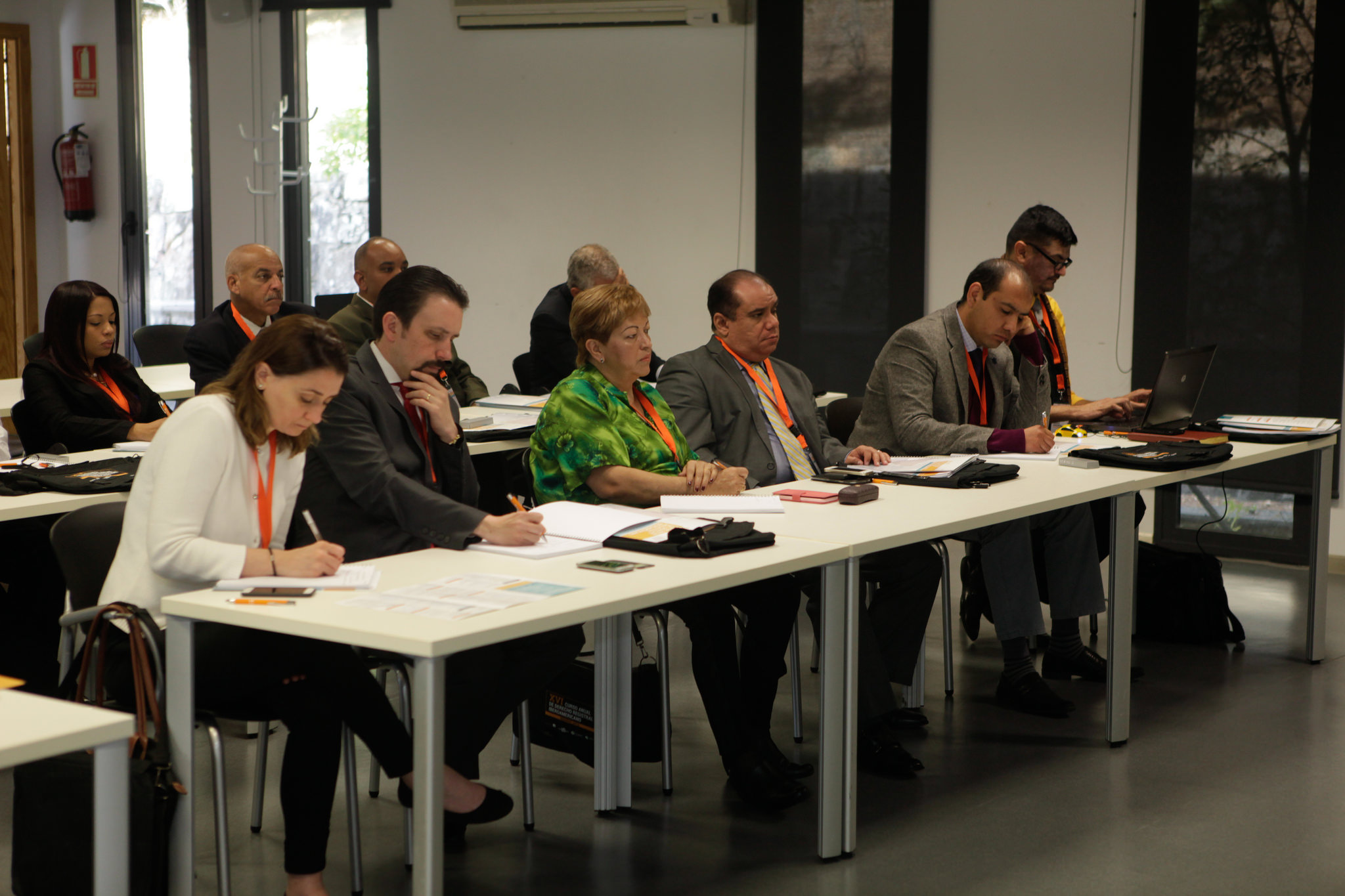-
|
16 September 2022
|Posteado en : Opinion
Police officers can develop mental and physical health problems due to the traumas they face during their career. Understanding and learning how to manage stress helps to prevent, recognise or avoid misbehaviour that undermines public trust in law enforcement. How do we address mental health in law enforcement?
Valentina Salvato, project officer of the project Promoting community policing in Lebanon, co-led by the FIIAPP, reflects on the importance of paying attention to mental health in police forces and the action developed by the project through various training courses for this purpose.
Why is this approach necessary?
Being a police officer means being exposed on a daily basis to traumatic events that can endanger their own life: accidents, violence, critical situations and emergencies, natural disasters… All of these entail risks that can affect the mental health of any person. Moreover, we must take into account the current context of Lebanon, a country affected by an unprecedented severe political, economic and financial crisis and a series of traumatic events – the demonstrations of October 2019, the Beirut port explosion in August 2020 and the consequent worsening of the Covid-19 pandemic – which have had a direct impact on the lives of citizens, their behaviour, their psychological stability and their mental health.
How do we address mental health within the security forces?

The Chief Inspector of the Spanish National Police and director of the project, Joaquín Plasencia García (left), with one of the Lebanese officers who participated in the training in Aramoun. From the project Support to community policing in Lebanon, we seek to shed light on the issue of mental health in the security forces: a problem that is often ignored, unknown or even rejected. However, the truth is that police officers can develop mental and physical health problems due to the traumas they face during their career. Understanding and learning to manage stress helps to prevent, recognise or avoid misbehaviour that undermines public confidence in law enforcement. As the chief inspector of the Spanish National Police and director of the project, Joaquín Plasencia García, points out, “if a police officer loses the trust of citizens, he loses everything”.
For this reason, we support the Lebanese police in order to implement a preventive and psycho-educational strategy with psychological tools and methodologies to prevent, protect and resolve possible stress situations.
Thanks to the trainings we have offered in Lebanon, such as the last one at the Internal Security Forces Academy (Aramoun), 63 police officers have received tools to prevent and deal with stress situations, conflict resolution, anxiety and post-traumatic stress disorder, depression, anger management or emotion control. This mental health training is also an excellent form of primary prevention, as it increases the knowledge, awareness and resilience of all officers, achieving a direct impact on citizen care, as it reduces and prevents episodes of misconduct in the security forces.
By caring for the well-being of those who care for us, citizens receive better care and service.
-
|
28 October 2016
|Posteado en : Opinion
FIIAPP's Information and Special Programmes Director, Isabel Ramos Talma, reflects on the benefits of exchanging experiences with experts from different regions.
We have several long months of hard work behind us. Numerous meetings, agreements and negotiations for achieving our objective: to bring Latin American experts to our Spanish institutions to share, through our experts, our know-how, experience and knowledge.
But, what does this incredible exchange of experience really do?
After attending several opening and closing sessions for a variety of seminars – such as the ones on property law, wastewater treatment, social innovation, international taxation and the fight against tax fraud – one comes to appreciate the enormous utility of these types of activities.
Activities that we could call specialised cultural exchanges and which have resulted in the creation of networks of experts that extend well beyond simple know-how. They end up leading to inseparable personal bonds and institutional links that turn into professional and cultural exchange networks.
This conclusion reconciles us once more with our work, if we were ever in doubt about what can be achieved by dint of effort and great determination.
It renews our faith in our small contributions in the context of international development cooperation, always focused on institutional strengthening through technical cooperation and mobilization of experts.

It also confirms that these actions are important, as they demonstrate, once again, that those who share experiences and knowledge are the people we manage to bring together for weeks at a time around a specific, always important, issue for Spanish Cooperation.
But we don’t leave it at that. We can go even further and be more ambitious with our expectations, as they demonstrate that, with these initiatives, we promote the sharing of a dose of culture and confidence in the institutions of different countries. Because at FIIAPP we work for people, and thus we improve citizens’ quality of life which, in the final analysis, is our ultimate objective.
It is always gratifying to be able to see first-hand, through direct experiences narrated in the first person by our guests and collaborators, that the effort has paid off, that the reward is talking to you and asking you to continue working in this same direction and that, with great effort butnot much money, great and ambitious objectives can be achieved.
All of this encourages us to keep making an effort and working day after day to improve our institutions through people. Through this, we also progress and become better people and institutions.
By Isabel Ramos, Director of the Information and Special Programmes Area






